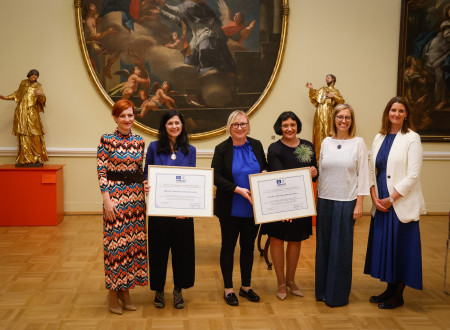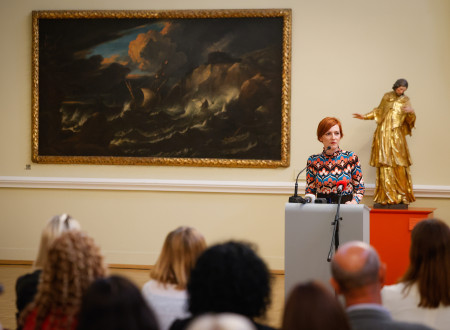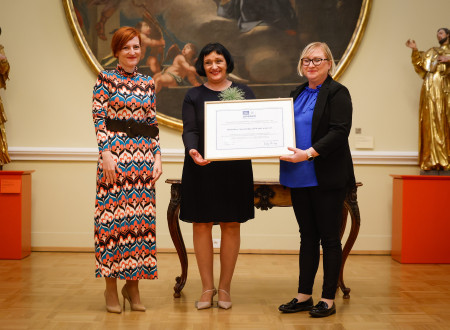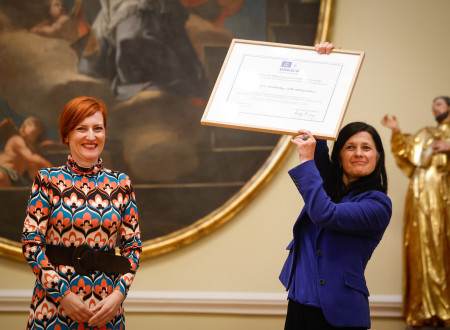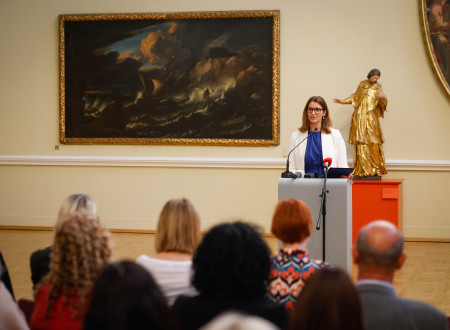Presentation of a charter to mark the inscription of midwifery on the Representative List of the Intangible Cultural Heritage of Humanity
The opening speech was given by the Director General of the Directorate of Cultural Heritage, Ms Špela Spanžel, the keynote speaker was the Minister of Culture, Dr Asta Vrečko, and the speaker of honour was the Minister of Health, Dr Valentina Prevolnik Rupel.
With its inscription on the UNESCO List, midwifery has become part of a rich and diverse intangible cultural heritage, uniting countries from all over the world in respect for the achievements of past generations and inspiring the creativity of modern expressions and social practices. Midwifery has been recognised by the United Nations Educational, Scientific and Cultural Organisation as an important human activity, based on knowledge of the human body and natural and cultural factors, which promotes the well-being of women, infants, children and families.
In her keynote address, the Minister of Culture, Dr Asta Vrečko, thanked all those who had contributed to the inscription of midwifery on the Representative List of Intangible Cultural Heritage. "Intangible heritage encompasses skills and knowledge that have been cultivated over decades and centuries, and this tradition is used in conjunction with modern scientific knowledge. This is also the message conveyed by your work and the inscription itself, which has brought together midwives, different cultural backgrounds and culture and health professions from Colombia to Slovenia, from Africa to Central Asia. In your work, you are strongly connected to the international community and you contribute to the existence of humanity on a daily basis. With this recognition, it is now up to us to ensure that this community will become even stronger," noted Minister Asta Vrečko as part of her address.
In her opening address, the Director General of the Directorate for Cultural Heritage, Špela Spanžel, stated: "Heritage is constituted by the stories that live on in the dialects and songs that have been passed from one generation to the next. It is embedded in the traditional dishes and customs that bring local communities together, and it supports the handicrafts that inspire contemporary creators. The project has also been a valuable learning experience for all of us, offering insights into the values of midwifery. We are grateful for this experience, for the knowledge acquired, the new sensitivity, respect and understanding, and especially for mutual respect. This will help us cooperate in the future."
"Midwives are therefore among the key players in the healthcare system, as they are able to make a significant impact on the lives of women and their families through their professional knowledge and empathy. They are able to create a safe and supportive environment, contribute to the empowerment of women and improve their health and social status in society. Furthermore, all of this has long-term positive effects on the whole community," pointed out the Minister of Health, Dr Valentina Prevolnik Rupel.



